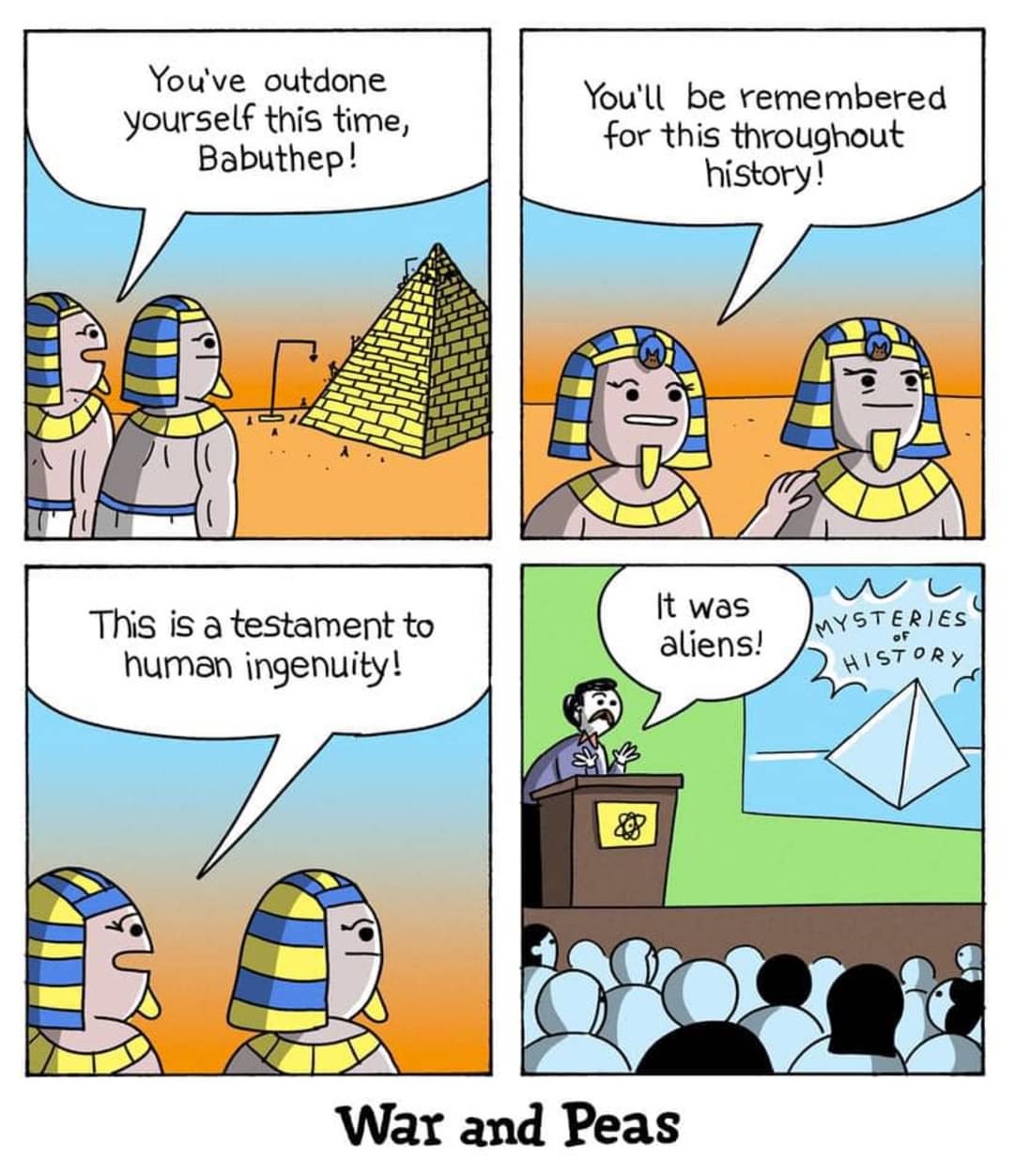this post was submitted on 09 Jul 2024
806 points (98.9% liked)
Science Memes
11570 readers
1186 users here now
Welcome to c/science_memes @ Mander.xyz!
A place for majestic STEMLORD peacocking, as well as memes about the realities of working in a lab.

Rules
- Don't throw mud. Behave like an intellectual and remember the human.
- Keep it rooted (on topic).
- No spam.
- Infographics welcome, get schooled.
This is a science community. We use the Dawkins definition of meme.
Research Committee
Other Mander Communities
Science and Research
Biology and Life Sciences
- [email protected]
- [email protected]
- [email protected]
- [email protected]
- [email protected]
- [email protected]
- [email protected]
- [email protected]
- [email protected]
- [email protected]
- [email protected]
- [email protected]
- [email protected]
- [email protected]
- [email protected]
- [email protected]
- [email protected]
- [email protected]
- [email protected]
- [email protected]
- [email protected]
- [email protected]
- [email protected]
- [email protected]
- !reptiles and [email protected]
Physical Sciences
- [email protected]
- [email protected]
- [email protected]
- [email protected]
- [email protected]
- [email protected]
- [email protected]
- [email protected]
- [email protected]
Humanities and Social Sciences
Practical and Applied Sciences
- !exercise-and [email protected]
- [email protected]
- !self [email protected]
- [email protected]
- [email protected]
- [email protected]
Memes
Miscellaneous
founded 2 years ago
MODERATORS
you are viewing a single comment's thread
view the rest of the comments
view the rest of the comments

Is it not the case that the stone around the Sphinx was in situ or not “exposed to light (then re-buried)”? I’m assuming OSL is the technique since afaik the Sphinx structure wasn’t burned (TL)?
https://www.thoughtco.com/luminescence-dating-cosmic-method-171538
I see articles that OSL confirms established dates, just not sure how the exposed-to-light-then-reburied works. We know the Sphinx was buried in the late 18th century, but obviously had been uncovered at some point before that in order to be built - what effect would that have on the OSL dating?
https://www.researchgate.net/publication/263201697_Surface_luminescence_dating_of_some_Egyptian_monuments lol
lol. Yeah ok. That’s fine. Numbers and technology can’t lie.
https://annas-archive.gs/